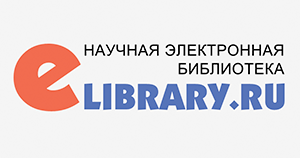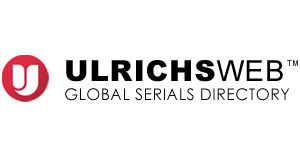Click to go to the English version of the site"
Нажмите на эту строку чтобы перейти к Новостям сайта "Русский врач"
Журнал включен в российские и международные библиотечные и реферативные базы данных
|
РИНЦ (Россия)
RINZ (RUSSIA)
|
Регистрационное агентство DOI (США)
DOI Registration Agency (USA)
|
Эко-Вектор (Россия)
Eco-Vector (Russia)
|
Ulrichsweb (Ulrich’s Periodicals Director
|
Development of inclusive education at the pharmaceutical college: achievements and prospects
DOI: https://doi.org/10.29296/25879979-2022-07-05
Issue:
7
Year:
2022
Inclusive education is the most promising form of education for people with disabilities. The development of inclusive education in the College of Pharmacy began in 2003 with training in the adapted program of the SPA Nursing Massage for people with visual disabilities (disabled groups 1, 2). A project was launched, the purpose of which was to develop opportunities for creating an accessible environment for students with physical disabilities. The preparation of the equipment of the material environment for the possibility of teaching people with visual disabilities was carried out, the training of the teaching staff was carried out according to the programs for the implementation of inclusive education, persons with visual disabilities interested in receiving this education were involved. During the period from 2003 to 2014, 166 such specialists were trained. At the college, at the request of the Society of the blind, a professional skill contest “Master’s Cup” is held annually, in which graduates of both our college and other regions took part.
Keywords:
students
inclusive education
physical vision limitations
nursing
medical massage.
References:
- Nabiev T.S., Mavlonova O. About inclusive education. Scientific progress. 2021; 2: 132–137. (in Russian).
- Fetisova A.V. Social integration of young people with disabilities into society through the development of cultural leisure as one of the priorities of the state youth policy. Science Time. 2014; 1: 365–377. (in Russian).
- Mikhalchik E.V. Comparative analysis of the terminology of inclusive education. Bulletin of the Baltic Federal University named after I. Kant. Series: Philology, pedagogy, psychology. 2015; 5: 145–149. (in Russian).
- Vinevskaya A.V., Kubyshkina M.D., Khachatryan S.K. et al. The basics of inclusive education. Its significance in modern society. Actual problems of humanities and natural sciences. 2014;11 (1): 294–297. (in Russian).
- Grabchuk K.M. Inclusive processes in educational organizations of higher and secondary vocational education. Scientific Bulletin of the Southern Institute of Management. 2017; 2: 115–119. (in Russian).
- Zholudova A.N., Polyakova O.V. Readiness of medical university teachers for inclusive education. Personality in a changing world: health, adaptation, development. 2019; 7(2) :332–341. (in Russian).




